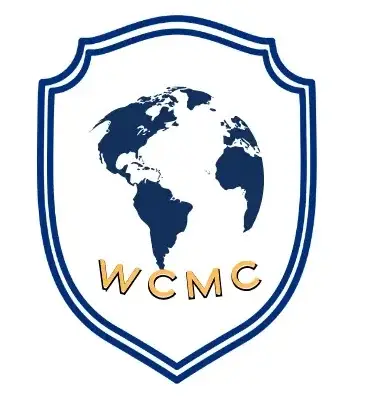Organogram
Structure and Leadership
Board of Directors
The World Council for Minority Christians is governed by a Board of Directors, which is responsible for providing strategic direction, oversight, and leadership to the organization. The Board is composed of up to 15 members, each of whom is elected to serve a three-year term. The Board members are drawn from diverse backgrounds, representing the diverse range of minority Christian communities that the organization serves.
The Board of Directors is responsible for approving the organization’s annual budget, setting policies and procedures, and ensuring that the Council’s activities align with its mission and vision. Board members are expected to actively participate in regular meetings, serve on committees, and provide guidance and support to the Executive Committee and the organization’s staff. They are also responsible for ensuring the financial sustainability of the Council and for identifying and securing funding sources to support its programs and initiatives.
Board members are elected by the membership of the World Council for Minority Christians, and they can serve up to two consecutive terms. The Board is designed to be representative of the diverse communities that the organization serves, with members coming from different denominations, regions, and backgrounds. This ensures that the Council’s decision-making and strategic planning process is informed by a wide range of perspectives and experiences.
Duties of Officers
The officers of World Council for Minority Christians, including the President, Vice President, General Secretary, and Treasurer, have distinct responsibilities that are crucial to the effective operation and governance of the organization. These duties are outlined in the organization’s bylaws to ensure transparency, accountability, and the achievement of the nonprofit’s mission.
The individual who conceived the idea and vision for the organization will be recognized as the Founder and may serve as a lifelong member of the executive committee by holding one officer position to pursue the vision. The Founder can be the President or work closely with the President and Executive Director to manage day-to-day operations and collaborate with the Board of Directors to set the organization’s vision and priorities.
The President serves as the chief executive officer and supreme authority, providing strategic leadership and oversight. They are responsible for presiding over all board and executive committee meetings, representing the organization externally, and ensuring the execution of the organization’s policies and programs. The President also works closely with the Executive Director to manage day-today
operations and collaborates with the Board of Directors to set the organization’s vision and priorities.
The Vice President acts as the President’s deputy, stepping in to fulfill the President’s duties in their absence. They also serve as a member of the Executive Committee, contributing to the overall management and decision-making processes of the organization. The Vice President may be assigned specific projects or initiatives to oversee, ensuring the smooth functioning of the organization.
The General Secretary is responsible for maintaining accurate and up-to-date records of the organization, including meeting minutes, membership rosters, and official correspondence. They also ensure that all necessary legal and regulatory filings are completed in a timely manner, and that the organization’s governing documents are kept current and accessible to members.
The Treasurer is tasked with overseeing the organization’s financial affairs, including managing the budget, maintaining accurate financial records, and ensuring compliance with relevant laws and regulations. They work closely with the Finance Committee to develop and implement sound financial policies and procedures, and provide regular reports to the Board of Directors on the organization’s financial health and performance.
Executive Committee
The World Council for Minority Christians shall have an Executive Committee that oversees the day-to-day operations and strategic direction of the organization. This committee shall be comprised of the organization’s elected officers, including the President, Vice President,
General Secretary, and Treasurer. The Executive Committee shall meet regularly, at least quarterly, to discuss pressing matters, review financial reports, and make key decisions on behalf of the organization. They shall be responsible for implementing the policies and
programs approved by the Board of Directors, as well as monitoring the organization’s progress towards its stated mission and objectives.
The Executive Committee shall have the authority to establish subcommittees and working groups as needed to handle specific tasks or areas of focus. This may include committees focused on fundraising, communications, membership engagement, or special projects. Each subcommittee shall report back to the Executive Committee on a regular basis to ensure alignment and coordination across the organization. The Executive Committee shall also be empowered to hire and oversee any necessary staff or contractors to support the work of the organization.
All decisions made by the Executive Committee shall be subject to review and approval by the full Board of Directors. The Executive Committee shall provide regular updates and recommendations to the Board to ensure transparency and collective oversight. Through this structure, the Executive Committee shall serve as the operational nerve center of the World Council for Minority Christians, driving progress while remaining accountable to the broader governing body.
Membership Structure

The World Council for Minority Christians offers several types of memberships to accommodate the diverse needs and interests of individuals and organizations supporting its mission. These include individual memberships, family memberships, student/senior memberships, and organizational memberships for churches, charities, and other nonprofits.
All members of the World Council receive exclusive access to the organization’s resources, including research reports, policy briefs, and educational materials. Members also enjoy discounted registration for the Council’s annual conference, opportunities to participate in working groups and advocacy initiatives, and the ability to vote in the organization’s elections.
The Council has established reasonable membership dues to ensure the organization’s financial sustainability and the continued delivery of high-quality programs and services. Dues vary based on membership type, with discounted rates available for students, seniors, and those facing financial hardship. Members have the option to make onetime payments or set up recurring annual or monthly contributions.
Memberships are valid for one year and must be renewed annually to maintain active status. The Council will send renewal reminders to members three months prior to their expiration date, allowing ample time for them to renew their commitment to the organization and its mission.
